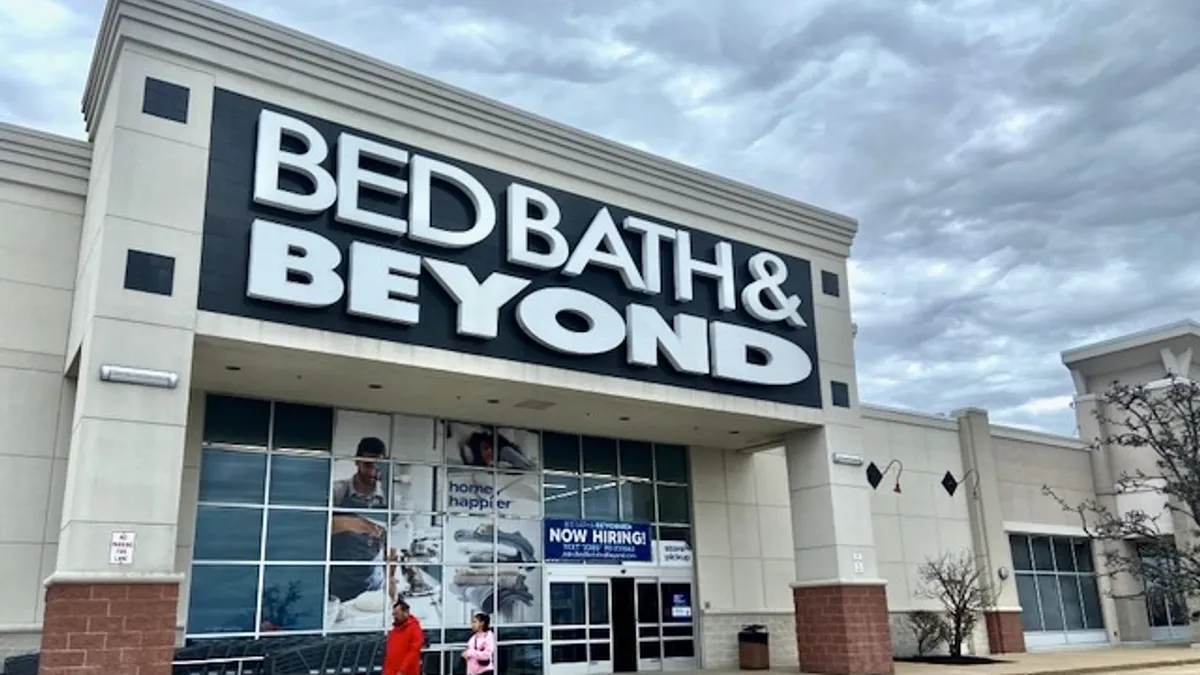Dive Brief:
- Bed Bath & Beyond is seeking court permission to pay up to $17 million to vendors including merchandise suppliers, warehousers, trucking companies and parcel carriers.
- The $17 million figure is the company’s estimate on what it owes on “critical” lien claims by vendors as of its Sunday Chapter 11 filing, or in the interim before a final hearing takes place.
- In a court filing, Bed Bath & Beyond said the balances to vendors need to be paid to ensure uninterrupted service as it looks to wind down its business and sell off its remaining assets in bankruptcy in the coming months.
Dive Insight:
Even as it looks to close shop, Bed Bath & Beyond needs the support of its supplier base and logistics providers.
That is mainly so that it can wind down smoothly, get the most out of its store closing sales and preserve what value is left in its assets, including its brand property. As the company put it, Bed Bath & Beyond “can ill-afford severe disruption to their flow of Merchandise at this critical juncture” in Chapter 11.
In some cases, the retailer’s analysis found that the value of certain products and services to the company and its stakeholders “far outweighs the cost of payment of the claim,” making repayment all the more crucial.
Overall, though, Bed Bath & Beyond is being strategic about who it pays and how much. The retailer said it is only planning to pay “undisputed and valid prepetition Critical Lien Claims that are necessary and critical” to preserve the value of its assets. Bed Bath & Beyond will also, where it can, condition payment on a vendor continuing to ship to or service the retailer.
Along with the merchandise and service, Bed Bath & Beyond said that vendors that provide it with “reasonable trade terms” in bankruptcy create “considerable liquidity” for the company, which it needs even now after filing.
Deteriorating supplier relationships played a significant role in the retailer’s journey into bankruptcy. Its sales in recent quarters have plummeted as suppliers tightened up their payment terms, and the retailer lacked the cash to fully stock its shelves.
In recent weeks, Bed Bath & Beyond launched a consignment program in an attempt to bring in more inventory, but the program obviously wasn’t enough to keep the company out of bankruptcy court.
Prioritizing repayment of certain claims in a bankruptcy typically requires court approval, as creditors and stakeholders jockey for their place in the repayment line. Bed Bath & Beyond requested a final hearing on the critical lienholder payments within 28 days of its filing.
According to the terms of its bankruptcy financing package, Bed Bath & Beyond has 90 days to complete the liquidation of its stores.














